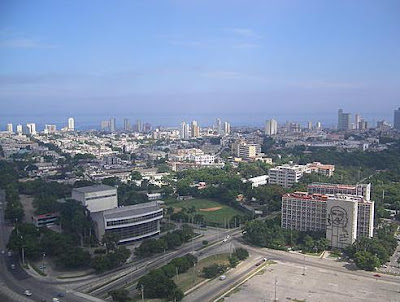
Rumors of Quick Demise Of 2-Tier System Untrue
By Manuel Roig-Franzia
Washington Post Foreign Service
Wednesday, February 27, 2008; Page A08
HAVANA, Feb. 26 -- Cubans swamped currency exchange offices Monday and early Tuesday in a brief but intense speculative frenzy fueled by rumors that new President Ra¿l Castro would end the island's reviled dual currency system.
Hoping to make a quick profit, many Cubans traded the country's valuable "convertible pesos" -- a currency primarily used by tourists, foreign-owned businesses, the elite and black-market vendors -- for the weak Cuban national peso, which is used for the salaries and pensions of nearly all Cubans. The speculators believed that Castro, who hinted about gradually changing the dual money system after being named president Sunday, would double the value of the weak national peso or abolish the stronger convertible peso.
The money swapping became so intense that some exchange offices ran out of national pesos, according to Cubans who stood in line at the offices and other observers. Faced with what amounted to a small-scale run on its banks, the government aired a report early Tuesday on the morning news program "Buenos Dias" emphasizing that any changes to the money system would be gradual.
As word of the report spread, the speculation seemed to end. Still, the episode illustrated the hair-trigger sensitivities surrounding money in Cuba, where everyone from janitors to Castro himself acknowledges that Cubans do not make enough money to maintain a decent standard of living.
"Look, those convertibles are practically worthless," said Victor Manuel, a parking attendant who declined to give his last name. "We're scared, and when we heard about Ra¿l's plan, it was an opportunity."
The money rumors began Sunday when Castro was named by the National Assembly to succeed his ailing brother, Fidel, who has not appeared in public in 19 months. In his nationally televised acceptance speech, Ra¿l said his government would "keep delving into the phenomenon of the double currency in the economy. . . . To avoid traumatic effects or inconsistencies, any changes related to the currency shall be made with a comprehensive approach."
In a somewhat cryptic passage, he seemed to imply there would be no immediate changes. Nonetheless, the Cuban rumor mill started to spin as lines formed outside exchange offices.
Although nearly all Cubans are paid in national pesos, many here have access to convertible pesos because they get tips from tourists or sell items on the massive black market. The convertible peso -- which is worth $1.08 -- was created in the mid-1990s when Fidel Castro opened the island to tourism to generate hard currency after the collapse of Cuba's biggest financial backer, the Soviet Union. A convertible peso is worth 24 national pesos.
Cubans cannot use national pesos in the island's best stores, which carry products -- such as beef, soap and cooking oil -- that are not available or are in short supply in state-run stores. As a result, the dual monetary system has created resentment among Cubans.
"I don't know any Cuban -- whether it's a businessperson, someone in the government or even the president of the Central Bank -- who doesn't want to change this dual system," Ariel Terrero, an economic columnist at the state-run magazine Bohemia, said Tuesday. "But it's in the best interest of everyone to do it slowly."
Terrero is widely credited here with tamping down the currency system rumors with his appearance Tuesday on "Buenos Dias."
"I am completely convinced that the dual money system will disappear," Terrero said in the interview. "But there is no way to predict when."







